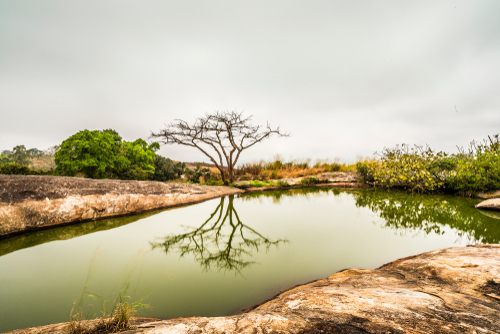
Africa, Religion and Climate Change
“In Africa, the entire relationship between humans and nature, including activities such as land use, has deep religious and spiritual underpinnings.” ~ Dr Joram Tarusarira
Africa contributes about two to three percent of global emissions, yet the continent will be disproportionately affected by global climate change. The impact of climate change is being felt in deforestation, rising sea levels, more floods, droughts and severe weather patterns. Economic development, human health and food and water security are all areas that are affected by changes to the climate system. The economic costs to African nations vulnerable to extreme climate patterns is projected to grow from $895 billion in 2018 to about $1.4 trillion in 2023.
But a great number of Africans still have little or no knowledge of climate change and the ecological crisis that affect us. A 2019 Afrobarometer survey found that four in 10 Africans are unfamiliar with the concept of climate change. And only about three in 10 are fully “climate change literate,” combining awareness of climate change with basic knowledge about its causes and negative effects.
There is growing recognition that religious leaders are strategically placed to mobilise and contribute effectively to addressing the climate issues. Religious leaders across Africa have immense capacity to influence and motivate their members and communities to be good stewards of the earth by educating them on good environmental management such as planting trees.
In May this year, faith leaders from 42 African countries met in the Ethiopian capital of Addis Ababa to deliberate on the impact of climate change in Africa, they came up with recommendations on how faith communities can engage in action to mitigate the effects of climate change. The outcome of the conference was a policy position that will be taken to the COP26 conference in Glasgow in November 1, 2021.
The current strategies to addressing climate change adopt western theoretical and scientific frameworks which are incongruous with African cosmology and worldview. The African approach to life and faith is holistic. The landmark encyclical by Pope Francis Laudato Si acknowledges that the environmental challenges we face cannot simply be understood as scientific but are spiritual and moral. This chimes with the way Africans understand the relationship between nature and humans as integrated and as deeply spiritual.
The panellists in this webinar will discuss and explore what religious communities and people of faith in Africa can do and are doing to combat and reverse the climate crisis. The questions that will be considered are: What does the African person understand about climate change? What are the African theological and ethical worldviews regarding climate change? What are the practical challenges to responding to the crisis? Are there any issues arising from the legacy of colonialism that are inhibiting our ability to meet the challenges? These are highly important questions for a continent most at risk from the crisis before us.
Panellists:
Mrs Solape Hammond, Special Adviser on the Sustainable Development Goals (SDGs) and Investments to the Governor of Lagos State, Nigeria as well as Acting Commissioner for Wealth Creation and Employment
Ven Dr Stanley Nweze, Lecturer, Department of Religion, University of Nigeria, Nsukka
Meryne Warah, Co-facilitator and coordinator of Green Faith International Network
Dr Joram Tarusarira, Assistant Professor of Religion, Conflict and Peacebuilding at the University of Groningen in the Netherlands
Moderator:
Mrs Lande Abudu, Executive Secretary of Renewable Energy Association of Nigeria (REAN)






